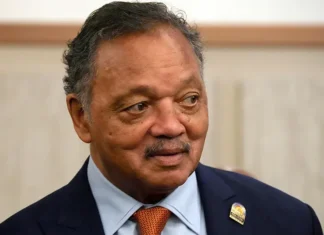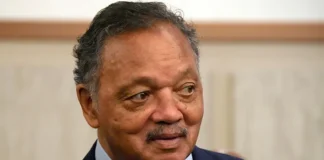
Ice Cube has never been afraid to take risks. A trendsetter from his days as a founding member of the groundbreaking rap group NWA, he began writing and starring in iconic movies like “Boys N Da Hood” and “Fridays” — popular, unapologetically Black films that made him lots of money and gave us a glimpse into the urban culture of South Central Los Angeles.
In 2017, he co-founded the Big3, a three-on-three basketball league that broke the 5-on-5 mold by professionalizing a form of the sport seen mostly on school playgrounds and public parks. Big3 has become a home for former elite NBA players to extend their careers playing against one another at the professional level.
But last week, Cube, known by his government name as O’Shea Jackson Jr., may have taken his trendsetting a tad too far when he offered Caitlin Clark, the University of Iowa superstar and arguably the biggest name in women’s basketball, $5 million to play in his league.
Some may call this Ice Cube’s latest brilliant, outside-the-box move. Others say it’s a step towards gender pay equity in sports, given women’s pro basketball players can only dream about earning $5 million for a season. Others may argue Cube has presented Clark — a once-in-a-generation talent who’s broken the NCAA all-time scoring record for any college player, male or female — with the chance to prove she can compete against men, the opportunity of a lifetime.
I can’t help but see Cube’s offer through the good old-fashioned American lens of race.
Can you just imagine what would happen if Clark, a white female athlete America adores right now, were injured playing against mostly Black former NBA stars in a damn three-on-three league? If Clark tears up her knee or catches an elbow to her face from some former NBA player twice her size, the blowback on Cube would be catastrophic.
Then there’s the question of whether Clark even needs Cube’s money.
Right now, as a college “amateur,” Clark has endorsement deals worth an estimated $3.1 million combined. She ranks fourth among all NIL-eligible NCAA athletes and is first among women’s college basketball players, recently passing Louisiana State University’s Angel Reese and University of Southern California’s Flau’jae Johnson, two Black women.
The WNBA caps players’ salaries at just under $235,000 a season, a fraction of what Clark currently earns for endorsements. But as a household name who drew legions of fans and TV coverage wherever and whenever the Iowa Hawkeyes played — and who would probably do the same for the WNBA — Clark could demand a record salary.
Ice Cube knows how hot the women’s game is right now.
There are also many, including myself, who would question Clark’s ability to compete in a 3-on-3 game vs. former NBA pros. And before you dismiss my claims, let’s remember that Caitlin Clark is 6’0”,155 pounds. As much as we marvel at her ability to dominate the women’s game, the average male NBA player is 6’6” and weighs roughly 220 pounds. These are not intramural or college players she will be guarding. These will be former professionals who were the best in the world at their craft. The strength and size Clark would have to defend in Cube’s league puts her at a significant disadvantage — and heightens her risk of injury. Truthfully, it could get really ugly.
Then there is the elephant in the room as to why Ice Cube made the offer to Caitlyn Clark and not — as far as we know — to any other highly skilled Black women players on the college basketball landscape. There is Angel Reese, LSU’s star and last year’s NCAA tournament MVP, who may come to mind. This is where I will give Ice Cube a pass. By no means do I think any woman in college basketball would have a chance to compete at a high level against former NBA pros in 3-on-3, but if we had to choose one, it would be Clark. Her ability to move without the basketball, shoot the three, and use screens gives her a much better shot than a player like Reese, whose game is predicated on physicality, attacking the glass, and bullying players in the post. Reese, at 6′-3″, would not be effective playing against former NBA players who may be close to 6′-7″ playing on the perimeter.
RELATED ARTICLE: Emotional Angel Reese Says She Has Been ‘Attacked So Many Times’ And Threatened Since Winning NCAA Title In 2023
As fans, it may be time we do some deep self-reflection. Have we become so bored now that everything must turn into some type of reality TV show spectacle? What happened to the purity of sport? Is boxing so bad that we would rather watch YouTuber Jake Paul wearing headgear fighting for a 57-year-old Mike Tyson? Can we not enjoy Clark’s greatness and domination of the women’s game as is? Why should Clark be forced to sacrifice her greatness to play against former NBA players, potentially dimming her light and ultimately hurting the women’s game in the process?
What are we trying to prove?
Truthfully, though, I know Ice Cube is no buffoon. He’s a natural-born capitalist who will always go against the grain and achieve his goals by any means necessary. Back in the day, he tried to warn Dr. Dre, Easy E, and all his NWA homies that Jerry Heller, NWA’s manager, was allegedly cheating the group out of their money. Ice Cube understands the importance of ownership as well as marketing. In that light, inviting Clark, currently the hottest name in any sport, to play in his league is Cube being a businessman. He knows how hot the women’s game is right now, and what better time to go against the grain than now? If anything, folks are talking about the Big3.
I can imagine him in that South Central L.A. drawl, talking about how this would put women ballers on the same competitive level as men and how this could be a step in the right direction for women athletes when it comes to pay equity. I can hear him repeating that line from one of my favorite songs of his: “Fool, you know how we do it.”

John Celestand is the program director of the Knight x LMA BloomLab, a $3.2 million initiative that supports the advancement and sustainability of local Black-owned news publications. He is a former freelance sports broadcaster and writer who covered the NBA and college basketball for multiple networks such as ESPN Regional Television, SNY, and Comcast Sportsnet Philadelphia. John was a member of the 2000 Los Angeles Lakers NBA Championship Team, playing alongside the late great Kobe Bryant and Shaquille O’Neal. He currently resides in Silver Spring, Maryland, with his wife and son.















